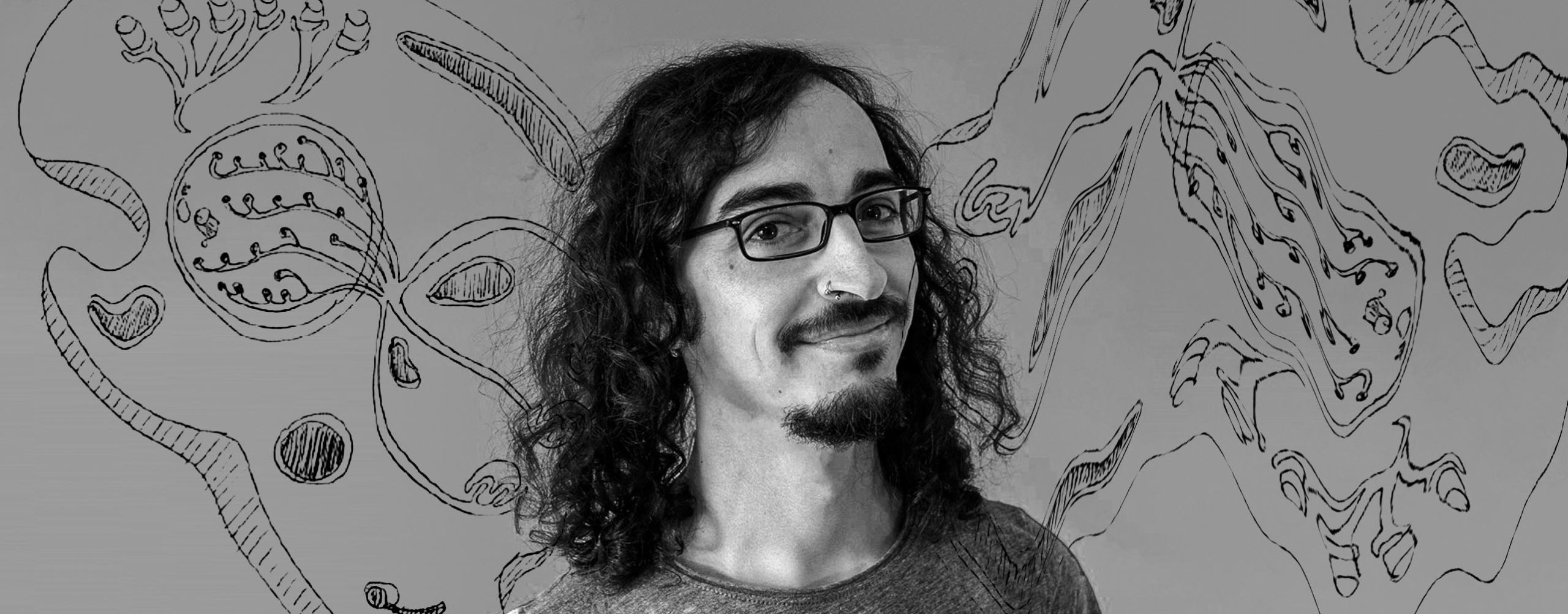He started in music as an instrumentalist, then studied composition at the conservatory in Vigo, Spain, and then opted to open other paths by studying electronic engineering. He currently lives in Helsinki researching the connection between sounds and minerals. In this article we tell you a little more about Mateo Mena, sound artist and creator of electronic musical instruments.
“After having finished my composition career at the conservatory, I started studying other things that interested me since I was a child, getting into the field of science, electricity, chemistry… and there I started the career of electronic engineering. Then, I did some things more related to music, and I also studied goldsmithing. I think what all those things have in common is trying to understand how materials work and how those materials can be used to generate vibrations that we perceive as sounds.
All of these interests have always been with me, I don’t consider them to be separate subjects. Since I’m not fully into composition now and not fully into electronics, I can combine everything and work at the intersection of science and craft, which is what I’m doing at the moment.”
What area are you currently working in?
Right now I’m studying at an institute called Microtonal Music Studios in Helsinki, on a project that looks at the relationship between the different tuning systems that have existed in different cultures and how we’ve gone to a tempered system, when it’s not really the best of all. It is just another system, in which pianos and guitars are tuned nowadays, but there are things that we are leaving aside because we are using that system. It’s as if we could see the whole palette of colors and suddenly reduce it to the most basic ones; we would see everything super pixelated or there would be a lot of nuances that we would miss. Instead, in microtonal music you can use frequencies that we don’t normally use. More specifically, what I’m doing now is investigating how to use certain minerals, salts and other chemical compounds that are present in nature to generate electrical oscillations.
Why did you choose Helsinki as a place to explore?
When I was living in Spain, I was interested in certain countries. For example, I was interested in Japan or Finland. They always talk very well about the education system or the quality of life in those places and I was interested in getting to know them a bit more. Also for their cultural perspectives, for how there is a different contact with nature, not so much from the perspective that I see in my native region, which is that nature is at our service. Here, from what I understand, it’s a little more about trying to coexist with what was there before us. I am here because I am interested in working with indigenous materials. I chose certain minerals that I know exist in this region.
Understanding and loving
“Electronic instruments are the last ones that existed within the whole range of instruments. It is considered that percussion instruments were the first, then wind instruments, stringed instruments, although it is not very well known. It’s just 120 years ago that electricity was used to generate a sound. It is curious, because there were composers before that used natural materials such as wood, but today what we see in electronic instruments is that practically everything is plastic. For me that is a big disadvantage.
Thinking more globally, I think there is a disconnection with nature and that generates many problems. So, that’s why I try to work with elements of nature and create that reconnection. Now I work with wood, rocks and minerals. Wood has a great property for me. While when you work with clay or metal, for example, you more or less know that it will always behave in the same way… with wood it’s totally different, it forces you to be attentive, within the same trunk or board there can be knots anywhere. It forces you to understand it, and for me, understanding the material is a part of loving it. There is a Japanese philosopher named Nishida Kitaro who talked about this, he said that knowing and loving were part of the same thing, a mental process in which the subject was joined to the object or the other person and that basically it was the same thing. That’s why I think materials are super important, to attach to them when you’re working on them.”
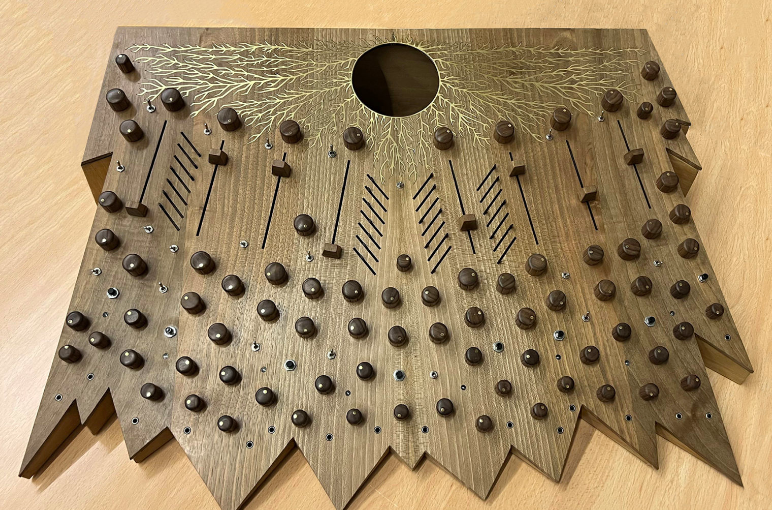 Ivpiter Fvlgvr
Ivpiter Fvlgvr
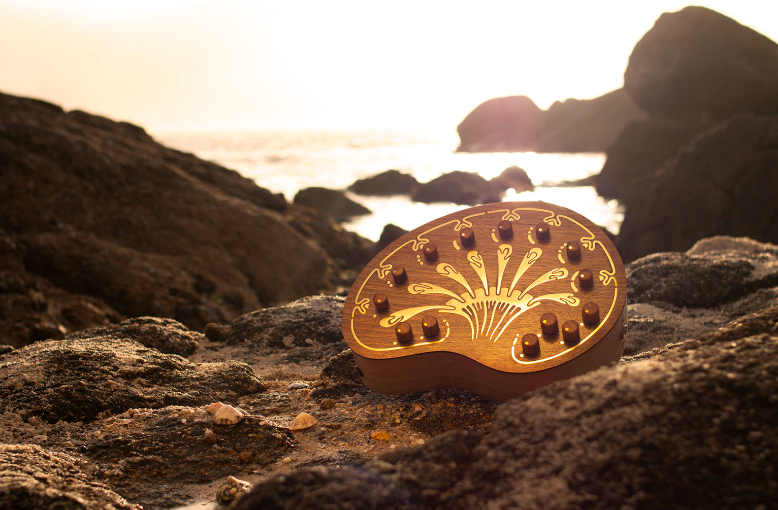 Medusa
Medusa
How could you, from your work, convey this message of the need to reconnect with nature?
I think the good thing about art is that it has the potential to re-signify or change reality and inspire others. In principle I see my projects as a personal exploration, but I feel that people, when I present some pieces, are interested in that connection between the material and nature. I think that many people today believe that it is necessary to re-establish that connection with nature, because – since practically the Industrial Revolution – we have not known how to create meaningful ties that allow us to establish respectful relationships with our ecosystem.
I think that today there are more and more people aware that we have to live differently, further away from arriving in one place and destroying everything and then going to another and doing the same thing. We can develop systems that are liberating and that allow us to establish these relationships of respect everywhere on Earth. I think, in that sense, the last thing we have left is art, to be able to inspire others. Precisely because it is a way of resignifying reality. Anything, a movement, an act, can become a symbol for another. When I make an instrument or a concert or whatever, I try to raise these questions. Obviously it does not depend only on me, but also on the person who is receiving it.
How can you maintain an organic cycle in the creation of an instrument?
Today everything is set up for you to consume, even within the field of art, which for me should be as anti-capitalist as possible. But this system has already absorbed everything, it seems that we have no way to fight against it. So even when someone wants to have tools to fight against the system, many times they have to buy those tools or materials. Anyway, you don’t have to blame everything on the system, you don’t have to feel bad just because you buy things. It is difficult, but my idea is that in the near future, I will be able to produce all the elements I use, or at least control most of the production stages.
Now I am designing an instrument that works with magnetites and that will help us to visualize the magnetic field that surrounds certain minerals and, through that magnetic field, a series of electrical connections will be made, which will affect the sound. What I intend to do, since I am in Finland, is to be able to travel to an area in the north of the country to extract certain rocks that are there, that is, to extract the material directly. I think that creates another relationship with the material.
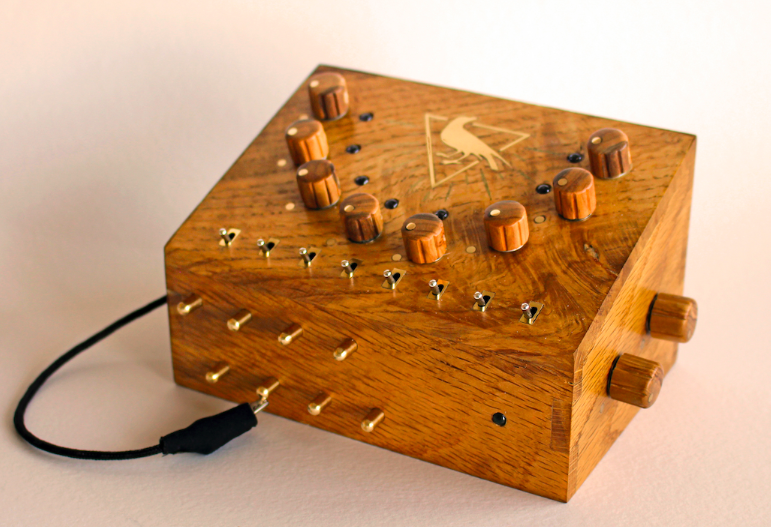 Serinette
Serinette
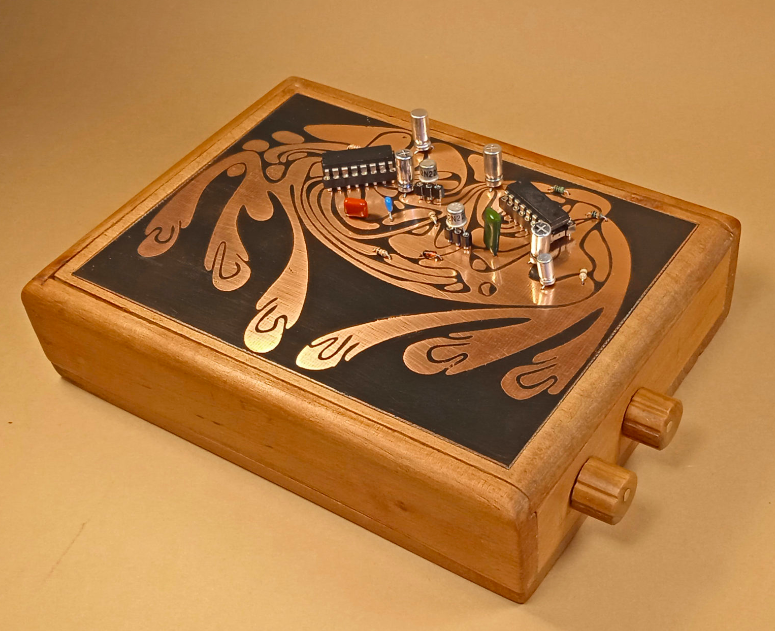 Liquen
Liquen
It’s not the same as if you buy a keyboard and make music, which of course is absolutely valid and in fact I think it’s very good. But I think if you control the different processes, you somehow relate differently to the material and that’s what I’m interested in: understanding the materials, the processes behind them; electrical and magnetic. Ultimately, trying to reconcile technology and our ecosystem from an ethical perspective, to me at least, would seem very inspiring and very poetic. If it will also make the person on the other side rethink certain ideas, even better.
A musical instrument seems to me to be the object that most reflects who you are, because it is a tool that will help you get to a place that was only in your imagination. It is a reflection of what you long for, even if it is a tool, there is no reason to make it out of plastic, because the instrument itself has the capacity to speak for itself. I also studied goldsmithing and I liked it because it’s turning the raw material into something meaningful. It’s not just what you do with it, but the process you have in doing it and the end result.
Connecting through emotion
“I think something very good about art, which is not present in science…let’s see, science is great, but from my point of view it lacks an emotional component. I think that through art you can have that emotional connection. I have been working in education for years doing workshops. I am a bit aware of how to create a good atmosphere within a workshop or how to reach others and I try to incorporate those learnings. I have done some research on the topic of multiple intelligences and how cognitive intelligence is reached through emotional intelligence.
When we think of our favorite teacher from school, or a subject that we didn’t like at all, but we had an emotional connection with that person, we suddenly found him or her fascinating. So I think that many people don’t empathize with science because it lacks that emotion behind it. If from art we can reach out and connect with certain people, it’s almost our responsibility to try to promote those connections that can lead us to a slightly better society.”
What other projects are you thinking about in the future?
I am now applying for another larger grant to study the relationship between alchemy and sound art. The idea would be to understand certain processes that took place in alchemy, which seems to me to be a super important proto-science. In that practice there was a respect for the materials, because one of the ideas of the alchemists was to return a normal piece of land to its original state of Eden. There was a respect for the environment, an attempt to understand nature and not take advantage of it, as we see today.
How could the connection between alchemy and sound art be, where is this link generated?
We perceive a super small fraction of reality, when we see something through our eyes, we only see certain frequencies, which are visible light. But, for example, radio waves or microwaves, we don’t see them. If we did, we would go crazy from all the information we are receiving. It has to do with vibration, I want to try to use sound in another way. I would like to work with it as if it were a plastic material, like something that is distilled, liquefied, and becomes something else. This is a bit like what the alchemists did in the Opus Magnum, which was finally about converting one material into another.
So, my idea to work on that piece of alchemy would be to build a series of glass retorts and, through certain processes, add chemical compounds to form the sound. It would not be through microphones, but through materials that you put inside, which are piezoelectric crystals. Imagine a pot, you are pouring things into it and those things turn the sound into something denser, or add a texture, turn it into something viscous. It is a plastic matter that travels through the stills. It’s as if basically through chemistry you can affect the sound, it’s something that I know it’s going to be difficult to do, but I’m really looking forward to it. All this seems very interesting to me, to work with sound from another perspective, also involving other senses.
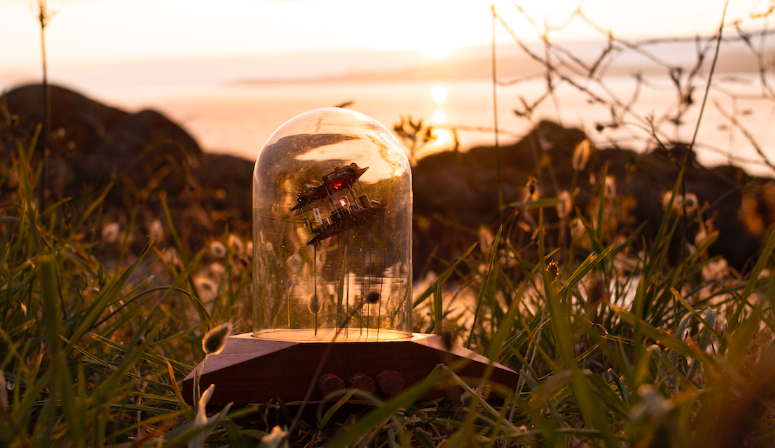 Insect apocalypse
Insect apocalypse
Why did you become interested in alchemy in particular?
I find alchemy fascinating, there was a time in the Middle Ages when there were thousands of alchemy treatises, today there are not so many left, people became disenchanted when they saw that many of those things were impossible to get. Nowadays we use the word panacea, which is like the remedy or medicine that cured all ills.
There were certain processes that interested the alchemists, one of those was just to get the panacea, another was to get the philosopher’s stone, and so on. It’s all very crazy when you see it from the perspective of the 21st century, but in that dark time it makes sense and is coherent. There were different ideas that you could work on, a lot of times an alchemist would work for half a lifetime on getting something and only managed to have his journal, which was very sacred, with super cryptic stuff in it so that nobody would steal his secrets. So because it’s so strange, I find it very interesting to combine it with sound.
The experience of sound
“Music seems to me to be a complicated concept. It is said to be any sound that is organized in time, but it can be many things. From the perspective I’m in now, I’m not so much interested in working with the idea of music, with all the connotations that word has, but more with sound as a multisensory experience. The idea is that sound is not the main thing, but that it is there, but that visually and olfactorily other things are also happening. It should be like a performative act, where electricity, sound, space are mixed… I think that has more capacity to reach the spectator.
In music it is very difficult for something to surprise you. I’m not saying that’s your goal, but when I go to a concert, what I want is to see something meaningful and I think that somehow if you combine different perspectives you can connect with the audience. For me that’s very important, when you’re researching something you’re doing it for you, but also because you want others to see things from your point of view or at least you want to reach them in some way.”
Connecting with the cosmos
“I’m working on a radio astronomy project, which is also something I’m very interested in, an instrument called Ivpiter Fvlgvr, which instead of having strings, membranes, or tubes, the stuff you use is electromagnetic storms coming to Earth from the planet Jupiter. Through a radio astronomy antenna, it somehow makes these inaudible frequencies audible. We cannot hear these storms if it is not through these antennas, and this can help us to retake and rethink our position in the cosmos and also to return to that connection with nature. If we don’t know things, we have no way to value them.
We see so little of nature that seeing more can help us understand more. This instrument will be the first in a series that works with radiation coming from other parts of the solar system. I had already worked with sounds called Sferics, which come from electrical discharges from our planet Earth. I tried to take it a little further with this instrument and that’s another line I’m looking forward to investigating.”
Hypercubes
